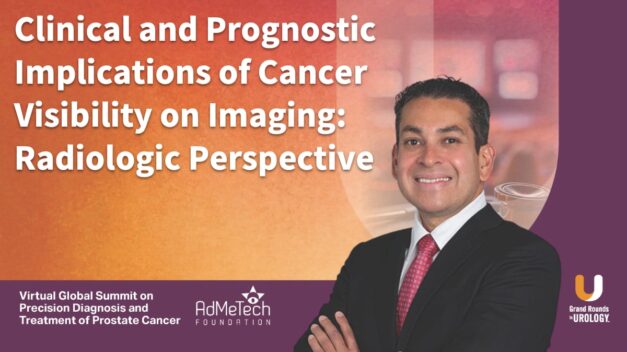Clinical and Prognostic Implications of Cancer Visibility on Imaging: Radiology Perspective
Alberto Vargas, MD, discusses the clinical and prognostic implications of prostate cancer visibility on MRI. He explains how technical factors, tumor biology, and radiologist expertise influence detection and outlines how visibility informs prognosis and patient management.
Read More



